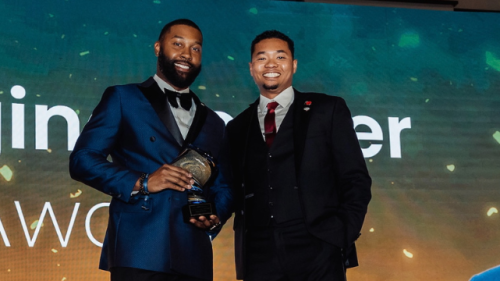Intrigued by thoughts of international security jobs? Many people have built top-level, lucrative careers with government agencies, non-governmental organizations (NGOs), private contractors, foundations and think tanks.1
These are careers that require preparation: researching the opportunities, focusing your professional goals and your skills, getting practical work experience and gaining a rigorous, well-rounded education.
Consider the following points as you get ready to make your move.
Clarify the distinctions between national, international and global security.
To create a targeted career pursuit, make sure that you clearly understand the field in which you’ll work. In national security, a state protects and defends its citizens. International security tends to involve two or more countries, whereas global security involves the entire world. Global security, in the age of globalization and interdependence, requires the cooperation of the various states around the world, since no single national security plan can handle the vast challenges that the world now faces.2,3
A career in international security will address the complex nature of stability and security, touching nearly every aspect of society. Economic inequality, regional warfare, fleeing refugees, transnational crime, human rights violations, cyber attacks and climate change are all potential threats to the security of individual nations and to global security overall.4 The coronavirus pandemic can destabilize regions.5 Water scarcity is seen to have potential social, political and security implications.6
What job could you hold?
Opportunities in international security are extremely diverse. You may become a security analyst or special agent at an overseas office of the Federal Bureau of Investigations (FBI).7 You might work in security risk management for one of the non-governmental organizations listed with the Global Interagency Security Forum (GISF). Positions posted there in 2020 include a liaison and safety officer for the Center for Civilians in Conflict in Yemen, and a regional security risk manager for Catholic Relief Services in West Africa.8
The collection, analysis and distribution of foreign intelligence and counterintelligence make up an important component of international security work. Late summer of 2020 saw opportunities for a multi-discipline security officer, a cyber threat analyst and a technical operations officer at the Central Intelligence Agency (CIA);9 an intelligence collector and a foreign language analyst at the National Security Agency (NSA);10 and a foreign affairs officer and an intelligence research specialist at the U.S. Department of State.11
How can you start a career in international security?
Many security employers emphasize the importance of completing an internship as part of your career foundation. One organization offers, “exceptional opportunities for talented individuals who are considering a career in government, international relations, counter-terrorism, and international security fields. Our research fellows and interns have the unique chance to learn about current international security issues and interact with field experts, scholars, and young, upcoming leaders.”12
If you want to specialize in cybersecurity, at least one expert suggests that you let people know. In a 2019 article in Forbes, cybersecurity specialist Karla Reffold recommended networking at industry events and conferences. “The industry is crying out for people,” she said. “People who already have technical skills or who have a particular interest in security can get jobs very quickly by showing an interest before the right people.”13
Do your research. Acquire a detailed understanding of what positions are available and how they differ, so that you can pursue the ones that best fit your interests and skills. Learn exactly what skills are required, and then get thoroughly trained in the ones you lack. The internship program quoted above “typically considers undergraduate and graduate students pursuing degrees in international relations, political science, economics, or other related fields. In addition to meeting the intellectual requirements, applicants should have excellent writing and research skills, along with basic computer knowledge.”12
What qualifications do you need?
Whether you wish to work with an intergovernmental agency, NGO or private firm, employers will want to see theoretical and practical knowledge in your education and work experience.
The particular requirements will vary, depending on the organization and available position level. For example, in United Nations Competencies for the Future, the United Nations (UN) lists and details two sets of competencies—“skills, attributes and behaviours that are directly related to successful performance on the job”14—which are required in its employees
Core competencies are considered important for all staff, regardless of their function or level:
- Communication
- Teamwork
- Planning and organizing
- Accountability
- Creativity
- Client orientation
- Commitment to continuous learning
- Technological awareness
Managerial competencies are considered essential for staff with managerial or supervisory responsibilities:
- Leadership
- Vision
- Empowering others
- Building trust
- Managing performance
- Judgement/decision-making
The UN document notes, “Acquiring a competency is not a one-time event, but rather an ongoing process. Formal training can help, but experience, coaching, feedback and individual learning activities are needed as well.”14
In addition to a strong interest in international affairs and a bachelor’s degree with at least a 3.0 GPA, the CIA lists these desirable qualifications for people applying to become agents:
- Experience of foreign lands and traveling abroad
- Experience living abroad
- A sensitivity to other cultures
- Foreign language proficiency
- The “critical” languages of the CIA include: Arabic, Dari, Korean, Persian, Somali, Chinese, Indonesian, Pashto, Turkish, Urdu, and Kurdish15
Higher education can foster your career.
Careers in international security require diverse knowledge and practical experience. There are many kinds of positions suited to varied skill sets and experience levels, but all begin with a well-rounded education that provides an overview of the complex global security environment, with its many interconnections. Higher education—in particular, a robust advanced degree program—can provide you with the tools and resources you need.
The Kent University online Master of Arts (MA) in Criminology and Criminal Justice, with a concentration in Global Security, includes study in these areas:
- Intelligence and national security
- Homeland security
- Terrorism and counter-terrorism
- Information and cybersecurity
- Human service agencies and the law
Turn Our Skills Into Your Skills.
Faculty in the Kent State Department of Sociology include PhD professionals with extensive backgrounds in law enforcement, investigations and undercover work; intelligence research and analysis; transnational crimes, cybersecurity, international policy and intellectual property issues; international affairs and diplomacy; and criminological theory and criminal justice education.
You’ll study with the best in our online MA in Criminology and Criminal Justice program, with a concentration in Global Security. Discover how our curriculum can give you the advantage you need for a successful career.
Sources:
- Retrieved on August 14, 2020 from globaljobs.org/
- Retrieved on August 14, 2020 from un.org/en/chronicle/article/national-security-versus-global-security
- Retrieved on August 14, 2020 from medium.com/@kennethandres/what-is-the-difference-between-international-and-global-security-a86b9937e5dc
- Retrieved on August 14, 2020 from globalsecurityreview.com/what-is-security-everything/
- Retrieved on August 14, 2020 from weforum.org/agenda/2020/04/we-need-major-cooperation-on-global-security-in-the-covid-19-era/
- Retrieved on August 14, 2020 from harvardnsj.org/2018/05/water-scarcity-the-most-understated-global-security-risk/
- Retrieved on August 14, 2020 from fbi.gov/contact-us/legal-attache-offices
- Retrieved on August 14, 2020 from gisf.ngo/vacancies/
- Retrieved on August 14, 2020 from cia.gov/careers/opportunities/cia-jobs/index.html
- Retrieved on August 14, 2020 from intelligencecareers.gov/NSA/nsacareers.html
- Retrieved on August 14, 2020 from careers.state.gov/
- Retrieved on August 14, 2020 from risetopeace.org/about-us/internships/
- Retrieved on August 14, 2020 from forbes.com/sites/forbeshumanresourcescouncil/2019/08/02/how-to-jump-start-your-career-in-cybersecurity/#6dbd879e758
- Retrieved on August 14, 2020 from careers.un.org/lbw/attachments/competencies_booklet_en.pdf
- Retrieved on August 14, 2020 from ciaagentedu.org/





